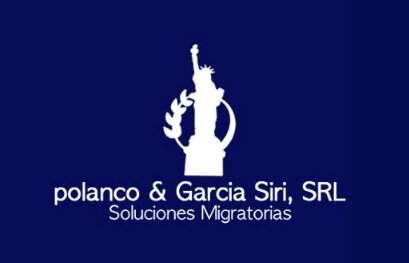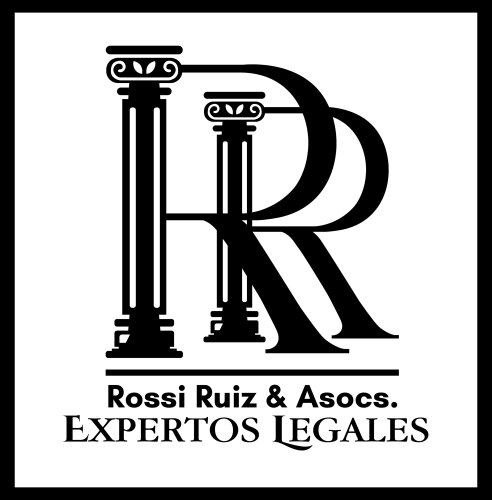Best Faith-Based Law Lawyers in Dominican Republic
Share your needs with us, get contacted by law firms.
Free. Takes 2 min.
Or refine your search by selecting a city:
List of the best lawyers in Dominican Republic
About Faith-Based Law in Dominican Republic
Faith-Based Law in the Dominican Republic involves the intersection of legal practices with religious doctrines, beliefs, and institutions. The country, primarily Catholic, reflects religious influences in various aspects of its legal system. This can affect family law, such as marriage and divorce, inheritance, and even employment law, where religious institutions have particular guidelines guiding their practices. Navigating Faith-Based Law requires an understanding of both civil law and the religious principles that influence it.
Why You May Need a Lawyer
There are several circumstances where individuals may require legal assistance under Faith-Based Law:
- Marriage and Divorce: Couples may need legal guidance on prenuptial agreements or divorce proceedings, particularly when religious laws are involved.
- Employment in Religious Institutions: Employees or employers might need advice on employment contracts, discrimination claims, or workplace conduct within religious entities.
- Inheritance Disputes: Legal advice may be necessary in matters of wills and inheritance where religious norms conflict with civil laws.
- Religious Rights and Freedoms: Individuals or groups might require assistance in cases involving religious freedom, such as rights to practice or assemble for worship.
- Property and Land Use: Legal help may be needed in disputes involving land use by religious entities.
Local Laws Overview
The Dominican Republic's legal system incorporates both civil and canonical laws, especially given its strong Catholic influence. Here are key aspects relevant to Faith-Based Law:
- Family Law: Marriage and divorce are influenced by Catholic doctrines. While secular laws exist, religious considerations often play a role.
- Employment Law: Specific regulations govern employment within religious institutions, balancing both civil rights and religious autonomy.
- Freedom of Religion: The constitution protects religious freedom but may also entail limitations when balancing other societal interests.
- Education: Religious institutions often have different guidelines related to educational content and employment of staff.
Frequently Asked Questions
What is the role of religion in Dominican family law?
Religious doctrines, especially Catholicism, traditionally influence family law matters such as marriage, divorce, and child custody, although civil statutes govern the legal process.
How does faith-based employment law work in religious institutions?
Employment within religious entities is subject to a unique set of rules that consider both civil employment laws and religious practices, which might influence hiring, conduct, and dismissal policies.
Can religious institutions own property in the Dominican Republic?
Yes, religious institutions can own property, but there may be specific regulations about how those properties can be used, particularly concerning community impact and zoning laws.
What are my rights if I face religious discrimination at work?
Civil laws protect against discrimination, including religious discrimination. If employed by a religious institution, understanding their specific guidelines and legal protections is crucial.
How can religious disputes be resolved?
Religious disputes, such as those involving property or doctrinal disagreements, can often be more complex. Mediation or arbitration may be preferred, sometimes involving ecclesiastical authorities.
How does the law protect freedom of religious expression?
The Dominican Republic's constitution guarantees freedom of expression, but there may be limits to ensure balance with public policy and safety concerns.
Can religious beliefs be used as a defense in legal proceedings?
While religious beliefs might be considered, Dominican courts prioritize civil law over ecclesiastical teachings, focusing on secular legal principles.
How are religious marriages recognized legally?
Religious marriages are recognized legally if they comply with civil registration requirements, ensuring both religious and civil legitimacy.
Are there special tax considerations for religious organizations?
Yes, religious organizations may receive tax exemptions or benefits, but they must comply with specific statutory requirements to maintain these privileges.
How can I ensure my will aligns with my religious beliefs?
Consulting a lawyer familiar with both civil and religious considerations is crucial to draft a will that honors religious beliefs while complying with legal statutes.
Additional Resources
For those seeking more information or assistance, here are some recommended resources:
- Dominican University Faculty of Law: Offers courses and information related to civil and religious law.
- Office of the Public Defender: Provides legal aid and information on civil rights, including religious freedoms.
- Local Ecclesiastical Authorities: Can provide guidance on religious doctrines and practices relevant to legal issues.
- Non-Governmental Organizations (NGOs): Various NGOs may offer specific support relating to religious freedom and rights.
Next Steps
If you find yourself in need of legal assistance in the area of Faith-Based Law in the Dominican Republic:
- Contact a lawyer with experience in both civil and religious law to get personalized advice.
- Gather all relevant documents and evidence related to your case to equip your lawyer with the needed information.
- Inquire with religious authorities about specific guidelines or support they may provide, especially if the matter deeply involves religious doctrines.
- Consider mediation or arbitration if applicable, which might be a less contentious route than litigation, especially for disputes involving ecclesiastical considerations.
Lawzana helps you find the best lawyers and law firms in Dominican Republic through a curated and pre-screened list of qualified legal professionals. Our platform offers rankings and detailed profiles of attorneys and law firms, allowing you to compare based on practice areas, including Faith-Based Law, experience, and client feedback.
Each profile includes a description of the firm's areas of practice, client reviews, team members and partners, year of establishment, spoken languages, office locations, contact information, social media presence, and any published articles or resources. Most firms on our platform speak English and are experienced in both local and international legal matters.
Get a quote from top-rated law firms in Dominican Republic — quickly, securely, and without unnecessary hassle.
Disclaimer:
The information provided on this page is for general informational purposes only and does not constitute legal advice. While we strive to ensure the accuracy and relevance of the content, legal information may change over time, and interpretations of the law can vary. You should always consult with a qualified legal professional for advice specific to your situation.
We disclaim all liability for actions taken or not taken based on the content of this page. If you believe any information is incorrect or outdated, please contact us, and we will review and update it where appropriate.
Browse faith-based law law firms by city in Dominican Republic
Refine your search by selecting a city.
















